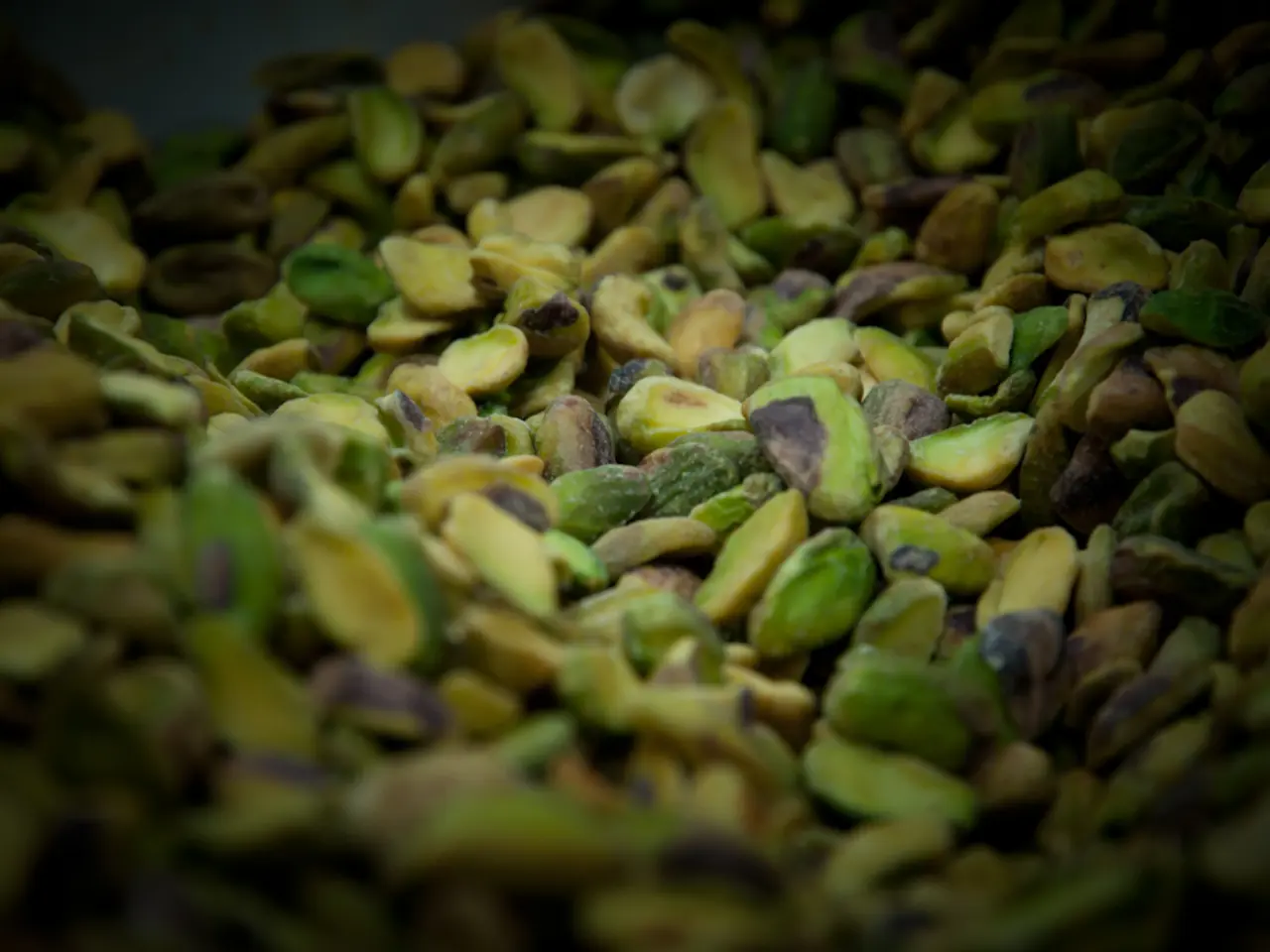Eating pistachios prior to sleep may benefit your digestive system.
In a groundbreaking study, researchers have discovered that replacing a bedtime carbohydrate snack with pistachios could lead to long-term health benefits for adults with prediabetes. This dietary switch is believed to reshape the gut microbiome, promoting the growth of beneficial bacteria that produce short-chain fatty acids like butyrate.
The 12-week study involved 51 adults diagnosed with prediabetes, who were divided into two groups. One group was instructed to eat two ounces (57 grams) of unsalted pistachios each night, while the other group continued with their usual carbohydrate snack.
The results were striking. Consuming pistachios nightly led to an increase in "good" bacteria such as Roseburia and members of the Lachnospiraceae family, which produce butyrate. Butyrate is an important energy source for colon cells and a compound that helps maintain the gut lining and exerts anti-inflammatory effects.
On the other hand, bacterial groups associated with adverse metabolic outcomes and inflammation, like Blautia hydrogenotrophica and Eubacterium flavonifractor, decreased during the pistachio phase. These bacteria are linked to heart and kidney risks.
The study found that replacing a carb-heavy snack with pistachios significantly altered gut bacteria in adults with prediabetes. Stool samples were collected and analyzed using 16S rRNA gene sequencing at the beginning and end of the 12-week period. Statistical tests confirmed that the overall bacterial diversity was significantly different between the two conditions.
Researcher Kristina Petersen stated that pistachios seem to be able to meaningfully shift the gut microbial landscape in adults with prediabetes. Another researcher, Terrence Riley, mentioned that a common dietary recommendation for individuals with prediabetes is to consume a nighttime snack consisting of 15 to 30 grams of carbohydrates.
The findings suggest that switching from a simple-carb bedtime snack to pistachios could meaningfully reshape the gut microbiome in a way that may support metabolic and gut health. However, it's important to note that this doesn't mean pistachios are a miracle cure for prediabetes. Instead, they could potentially have long-term health benefits such as slowing the development of Type 2 diabetes or reducing systemic inflammation.
The researchers hope to explore potential long-term health benefits in future research. They believe that a more favorable stool microbial community, resulting from pistachio consumption, could contribute to more stable blood sugar regulation and reduced systemic inflammation, which are crucial for preventing type 2 diabetes onset in prediabetic individuals.
In summary, this dietary substitution improves gut microbial composition and fosters anti-inflammatory processes, which may yield systemic health benefits and slow the development of diabetes in prediabetic adults. While more research is needed, these findings open up exciting possibilities for the role of pistachios in managing prediabetes and potentially reducing the risk of Type 2 diabetes.
Science has shown that replacing a bedtime snack with pistachios could lead to long-term health benefits for adults with prediabetes, as it reshapes the gut microbiome to promote the growth of beneficial bacteria that produce short-chain fatty acids like butyrate. This change in gut bacteria can also exert mental-health benefits, as butyrate has been linked to reduced systemic inflammation, a key factor in preventing Type 2 diabetes onset. Moreover, therapies-and-treatments for prediabetes may include changes in nutrition, such as consuming pistachios as a nighttime snack, which can offer long-term health benefits in terms of mental-health, fitness-and-exercise, and overall health-and-wellness.




